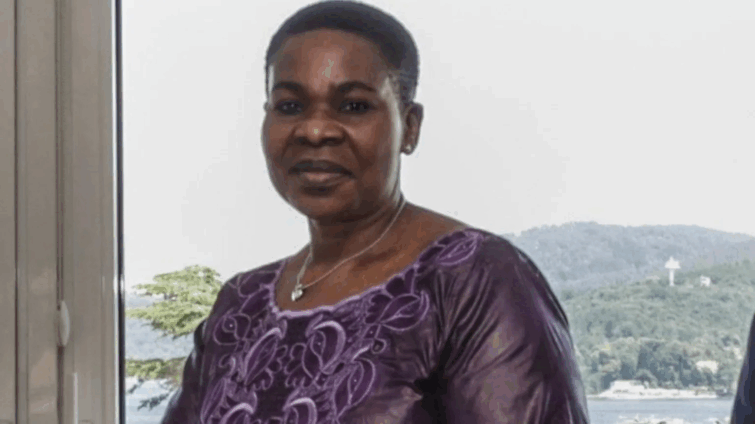
By Ben Brako
Ignorance, in its deepest sense, is not simply the absence of knowledge but a distortion of perception. It blinds human beings to the fundamental truths of existence and encourages us to mistake technological progress for wisdom. As a result, humanity often demonstrates astonishing ingenuity alongside profound folly.
The development of nuclear weapons illustrates this paradox: we have acquired the means to split atoms yet remain unable to master our impulses toward violence and destruction. To address this contradiction, we must revisit what may be called the “ABC of life”—the essential truths that underlie existence.
The ABC of Life: Unity as ontological foundation
The most basic truth of existence is unity. Life, in all its diversity, is fundamentally interconnected. Human beings do not exist in isolation but as participants in a vast ecological and cosmic cycle.
Every breath depends on the atmosphere generated by plants; every meal reflects the fertility of the soil; every heartbeat is sustained by exchanges with the environment. Birth, growth, reproduction, and death are not isolated events but stages within a continuous process of renewal.
This recognition echoes both ancient wisdom and contemporary science. In Akan cosmology, the individual is never autonomous but always embedded in community (abusua and ?man) and in relationship with nature (Gyekye, 1997).
Similarly, in modern ecology, the Gaia hypothesis describes the Earth as a self-regulating system in which organisms and their environment form a single, interdependent whole (Lovelock, 1979). To ignore this unity is to embrace ignorance in its most destructive form.
The Illusion of Individuality
Despite this reality, modern societies emphasize individuality, autonomy, and separation. This emphasis creates an illusion that undermines both social cohesion and ecological balance. Philosophers such as Buber (1970) argued that the self is constituted through relationship—the I-Thou encounter—rather than through isolation. Similarly, the African humanist philosophy of Ubuntu underscores that personhood is achieved through interdependence (Mbiti, 1969).
The disease of ignorance is most visible in our failure to recognize this interdependence. It manifests in exploitative economics, environmental degradation, and the prioritization of personal gain over communal well-being. To persist in such illusions is not only naïve but also a threat to survival.
Collective Consciousness
If life is one, consciousness itself cannot be confined to isolated individuals. The notion of a collective consciousness has appeared in multiple traditions. Durkheim (1995) introduced the concept in sociology to describe the shared beliefs and moral attitudes that operate as a unifying force in society. In psychology, Jung (1969) expanded this idea into the “collective unconscious,” suggesting that humanity shares archetypes and deep structures of meaning.
From a cultural perspective, African philosophical thought often stresses the communal dimension of consciousness. As Gyekye (1997) notes, Akan conceptions of the self emphasize relational personhood, where consciousness is shaped not only by the individual but also by the collective in which one participates.
When we tune into this collective consciousness, the centrality of love becomes evident. Love, here, is not merely emotional or romantic. It is the principle of connection, the ontological bond that holds existence together. In this sense, love can be understood as the ethical expression of ontological unity.
Love as the Centrality of Life
The claim that love lies at the center of life is consistent across philosophical and spiritual traditions. For Plato, love (eros) was the driving force that connects the soul to the eternal (Plato, trans. 1951). In Christian theology, Augustine defined love (caritas) as the essence of God and the ordering principle of creation (Augustine, trans. 1991). In African philosophy, Mbiti (1969) emphasizes that “to be is to be in relationship,” and that the binding principle of such relationships is care, reciprocity, and love.
From a scientific angle, contemporary physics and biology also hint at this principle. In systems theory and quantum entanglement, reality is described as relational, where parts exist only in terms of the whole (Capra, 1996). Love, in this framework, may be seen as the name we give to the force of cohesion that allows life and consciousness to flourish.
Spirit as the Precursor of Energy
While science describes reality in terms of energy and matter, many traditions argue for a deeper foundation: spirit. Spirit precedes energy as its source and grounding. In Akan thought, okra (soul) and sunsum (spirit) are the animating forces that give direction to human existence (Wiredu, 1996). Similarly, in Vedantic philosophy, Atman (spirit) is the source of all manifestation, while in Chinese Daoism, Qi is understood as vital energy infused with spiritual origin (Kohn, 2001).
To affirm spirit as the precursor of energy is to reject the reduction of life to mechanical causality. It is to insist that existence is infused with meaning, purpose, and direction. Spirit gives coherence to energy, and energy gives form to matter. Thus, reality is not random but structured by intentionality rooted in spirit.
The Disease of Ignorance and Stupidity (I & S)
Ignorance and stupidity—what may be abbreviated as “I & S”—are the diseases that prevent human beings from recognizing these truths. They distort perception, create illusions of separateness, and fuel destructive patterns of behavior. At their worst, I & S manifest in war, exploitation, and ecological devastation. They allow us to build weapons of mass destruction while neglecting the cultivation of peace; to pursue economic gain while destroying the ecosystems on which we depend; to develop technologies while eroding wisdom.
Healing Through Awareness
The cure for ignorance is awareness—awareness of unity, of collective consciousness, of love, and of spirit as the precursor of energy. Such awareness is both intellectual and experiential. It requires education that goes beyond information transfer to cultivate wisdom, compassion, and ecological responsibility. It requires social structures that prioritize cooperation over competition and community over individualism. It requires politics rooted not in domination but in justice, empathy, and love.
Healing begins with the acknowledgment that life is an indivisible whole. To awaken to this truth is to live in alignment with reality rather than in contradiction to it.
Conclusion
Ignorance remains humanity’s greatest disease, but it is not incurable. By returning to the ABC of life, we rediscover truths that are both ancient and urgently relevant: that all life is one, that love is the centrality of existence, and that spirit precedes energy. These truths have been affirmed in philosophy, religion, and science alike, though expressed in different vocabularies. To embrace them is to transcend the illusions of separateness and to cultivate wisdom.
In the end, the path beyond ignorance is not obscure. It is the simple yet profound recognition that we belong to one another, that love is the law of life, and that spirit is the ground of all being. The task of philosophy, politics, and culture alike is to embody this recognition and to orient human life toward harmony with the whole.
References
Augustine. (1991). The Confessions (H. Chadwick, Trans.). Oxford University Press. (Original work published ca. 400 CE)
Buber, M. (1970). I and Thou (W. Kaufmann, Trans.). Charles Scribner’s Sons. (Original work published 1923)
Capra, F. (1996). The web of life: A new scientific understanding of living systems. Anchor Books.
Durkheim, É. (1995). The elementary forms of religious life (K. E. Fields, Trans.). Free Press. (Original work published 1912)
Gyekye, K. (1997). Tradition and modernity: Philosophical reflections on the African experience. Oxford University Press.
Jung, C. G. (1969). The archetypes and the collective unconscious (R. F. C. Hull, Trans.). Princeton University Press. (Original work published 1959)
Kohn, L. (2001). Daoism and Chinese culture. Three Pines Press.
Lovelock, J. (1979). Gaia: A new look at life on Earth. Oxford University Press.
Mbiti, J. S. (1969). African religions and philosophy. Heinemann.
Plato. (1951). Symposium (M. Hamilton & H. Cairns, Trans.). Princeton University Press. (Original work ca. 4th century BCE)
Wiredu, K. (1996). Cultural universals and particulars: An African perspective. Indiana University Press.
The post Ignorance, collective consciousness, and the centrality of love appeared first on The Business & Financial Times.
Read Full Story






















Facebook
Twitter
Pinterest
Instagram
Google+
YouTube
LinkedIn
RSS